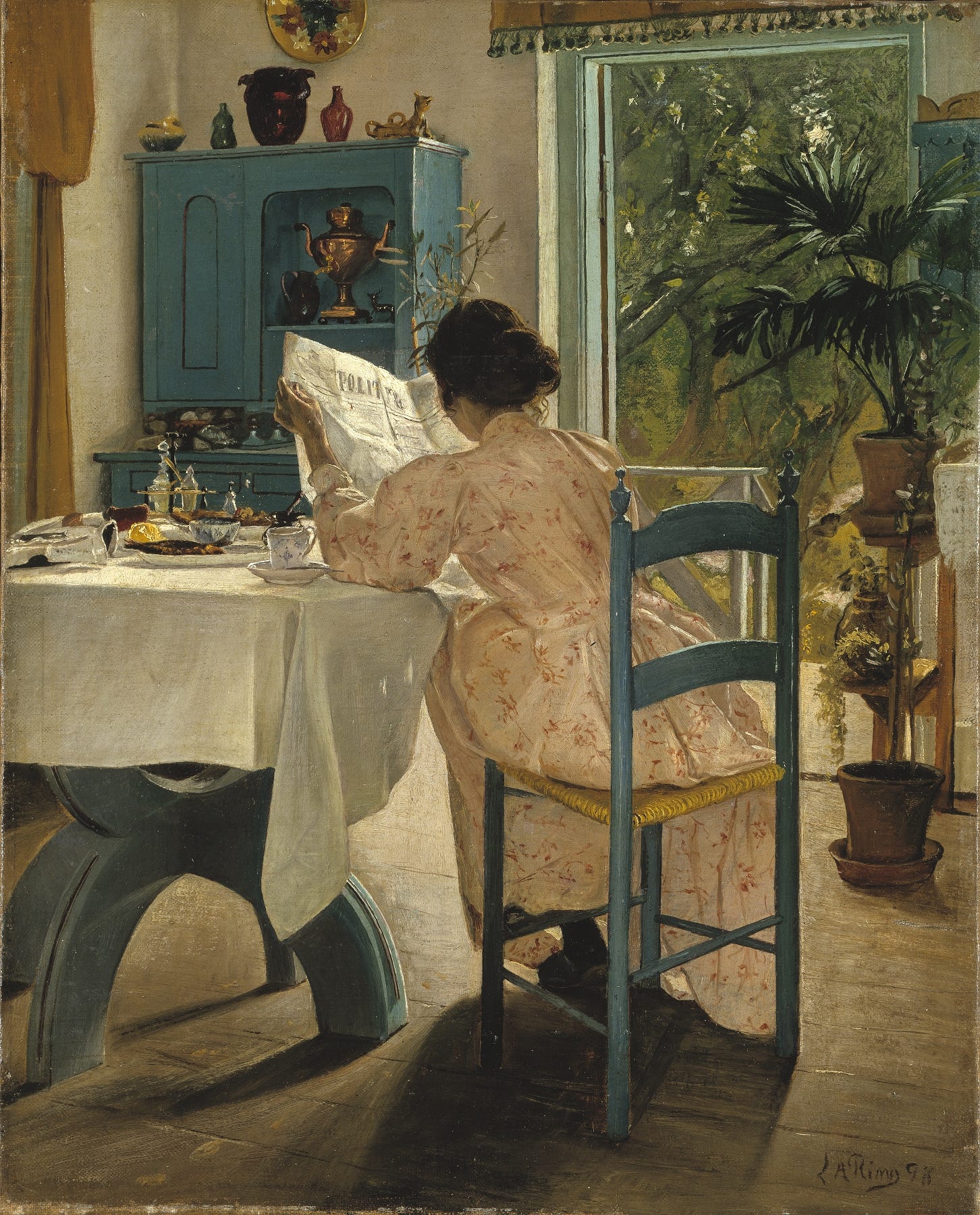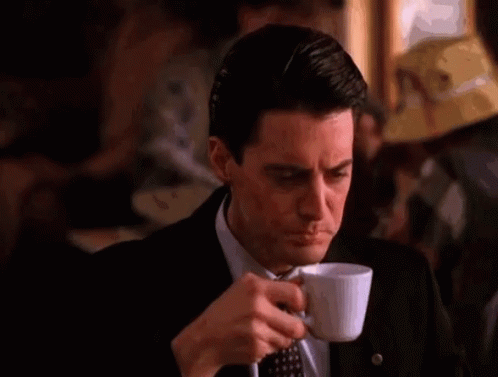What did you have for breakfast today?
I had a cup of coffee, boiled sweet potatoes and a bowl of coconut-poha.
What about last night?
I had a small bowl of spinach, a banana, a cup of beetroot malt, and half a bag of chips. In that specific order.
On some days I stuff myself and on some days I eat scraps. Some days I’m very conscious of what I eat and on the others, I am on the verge of giving myself food poisoning. It is definitely difficult to have clean eating habits throughout the day. My “fall from grace” usually happens around 5 to 6 pm when I feel ravenous and when there’s nothing “interesting enough” to be had in the house. So I grab whatever I could get my hands on — like that bag of chips I ate last night — biscuits, sunflower seeds, sweet jeera, what have you??
Like most people, I too have a difficult relationship with food. I have poor self-control and I tend to binge in spurts. Last year I had to be hospitalised because my stomach had turned very acidic. I thought I could unravel a little of my own eating habits in this letter and urge you to think of your own.
For us to be able to lead fulfilling lives, we must first be ready to receive. Therefore, how much do we care for the vessel (the body) that can receive?
My Species even a small purple artichoke boiled in its own bittered and darkening waters grows tender, grows tender and sweet patience, I think, my species keep testing the spiny leaves the spiny heart - Jane Hirshfield
I finally got my hands on Mason Currey’s Daily Rituals, a must-have for anyone interested in understanding a little more about artists’ routines and habits.
Currey is definitely one of the reasons why I began writing newsletters and I’d definitely recommend you to subscribe to his fabulous newsletter Subtle Maneuvers!
While I definitely learn a lot from their artistic rituals, I’ve been slightly disturbed by some of their eating habits. Some of it made me wonder how it was even possible for them to create, living that kind of lifestyle. But then again we are not unfamiliar with the suffering artist. Many of us are convinced that to be able to create, one must roil the deepest pit within and continue suffering. This shouldn’t be the truth!
Francis Bacon, the painter, for instance “lived a life of hedonistic excess, eating multiple rich meals a day, drinking tremendous qualities of alcohol, taking whatever stimulants were handy, and generally staying out later and partying harder than any of his contemporaries.”
Tulip
This is what the fashion magazine said:
if you must eat pasta, you should never eat more
than a tulip-sized amount, your meat never bigger
than a deck of cards. I was ashamed of my past—
my big bowl of noodles with butter melted on top,
two dozen tulips at least, enough pasta for a month
if I were a Cosmo girl, if I could wear dresses
as small as nickels, if my feet were peas.
I never told my husband that I ate the last slice
of our two-year-old wedding cake after a fight
and it's amazing: you don't die, even if the cake is icy
and the frozen frosting flakes away like dry skin
and you're eating really old flour and eggs
when you think about it, but I didn't think about it
or wait for the cake to defrost. I did tell a few people
about the lawn chair I threw at him later
and another friend said, "That's not so bad.
I threw a jar of jam at my boyfriend."
My husband never asked about the missing cake
that lived in foil, behind the ice cubes, for so long.
- Denise Duhamel“His only exercise was pacing in front of a canvas, and his idea of dieting was to take large quantities of garlic pills and shun egg yolks, desserts, and coffee-while continuing to guzzle a half-dozen bottles of wine and eat two or more large restaurant meals a day. His metabolism could apparently handle the excessive consumption without dimming his wits or expanding his waistline. (At least, not until late in his life, when the drinking finally seemed to catch up with him.) Even the occasional hangover was, in Bacon's mind, a boon. "I often like working with a hangover," he said, "because my mind is crackling with energy and I can think very clearly.”
(!!) I honestly doubt it.
Then there’s Patricia Highsmith, whose favourite writing technique was to sit on her bed surround by “cigarettes, ashtray, matches, a mug of coffee, a doughnut and an accompanying saucer of sugar.” And it gets worse — According to an acquaintance, “She only ever ate American bacon, fried eggs and cereal, all at odd times of the day.”
Filmmaker Ingmar Bergman had the quirkiest food habit of all. He apparently had the same lunch every day and it was “some kind of whipped sour milk, very fat, and strawberry jam, very sweet — a strange kind of baby food he eats with cornflakes.”
The hundred cups of coffee and packs of cigarettes and copious amounts of stiff drinks were giving me a headache and so I had to take a break from reading.
I was also quite amused to find the strange ways in which some of them had their coffee. Beethoven, for instance, counted the number of beans that went into his morning cup of coffee. “He determined that there should be sixty beans per cup, and he often counted them out one by one for a precise dose.” Jeez!
Italian filmmaker Fellini, had confessed that he’d been trying to make himself a decent cup of coffee for years and that it wasn’t one of his specialities. But man, does Kierkegaard take home the prize!
“Kierkegaard had his own quite peculiar way of having coffee: Delightedly he seized hold of the bag containing the sugar and poured sugar into the coffee cup until it was piled up above the rim. Next came the incredibly strong, black coffee, which slowly dissolved the white pyramid. The process was scarcely finished before the syrupy stimulant disappeared into the magister's stomach, where it mingled with the sherry to produce additional energy that percolated up into his seething and bubbling brain—which in any case had already been so productive all day that in the half-light Levin could still notice the tingling and throbbing in the overworked fingers when they grasped the slender handle of the cup.” (I am stumped!)
Although I drink both coffee and tea, I have a special liking for good coffee. I am usually finicky with my coffee and rarely have it outside. My only coffee quirk, although not so extreme, is to always pour milk after the coffee. Never milk and coffee. And coffee must never be had with sugar (Kierkegaard must roll in his grave hehe).
So dear friend, think a little of all that you eat. Is it helping you live a happy life?
There’s plenty of research directly linking gut health to mental health and we should pay careful attention to what we eat. I have been gathering my thoughts on this topic and I thought I’d continue it in my next letter to you as well.
Before I leave you, here’s a small gift of a poem from my all time favourites: Jane Hirshfield. I think it concludes this letter beautifully.
Da Capo
Take the used-up heart like a pebble
and throw it far out.
Soon there is nothing left.
Soon the last ripple exhausts itself
in the weeds.
Returning home, slice carrots, onions, celery.
Glaze them in oil before adding
the lentils, water, and herbs.
Then the roasted chestnuts, a little pepper, the salt.
Finish with goat cheese and parsley. Eat.
You may do this, I tell you, it is permitted.
Begin again the story of your life.
— Jane HirshfieldEat, dear friend. To your heart’s content. Consider, for a moment, what goes into you and let it bring you joy. Receive, humbly.
To beginning again <3
-A







Enjoyed Reading this too much!